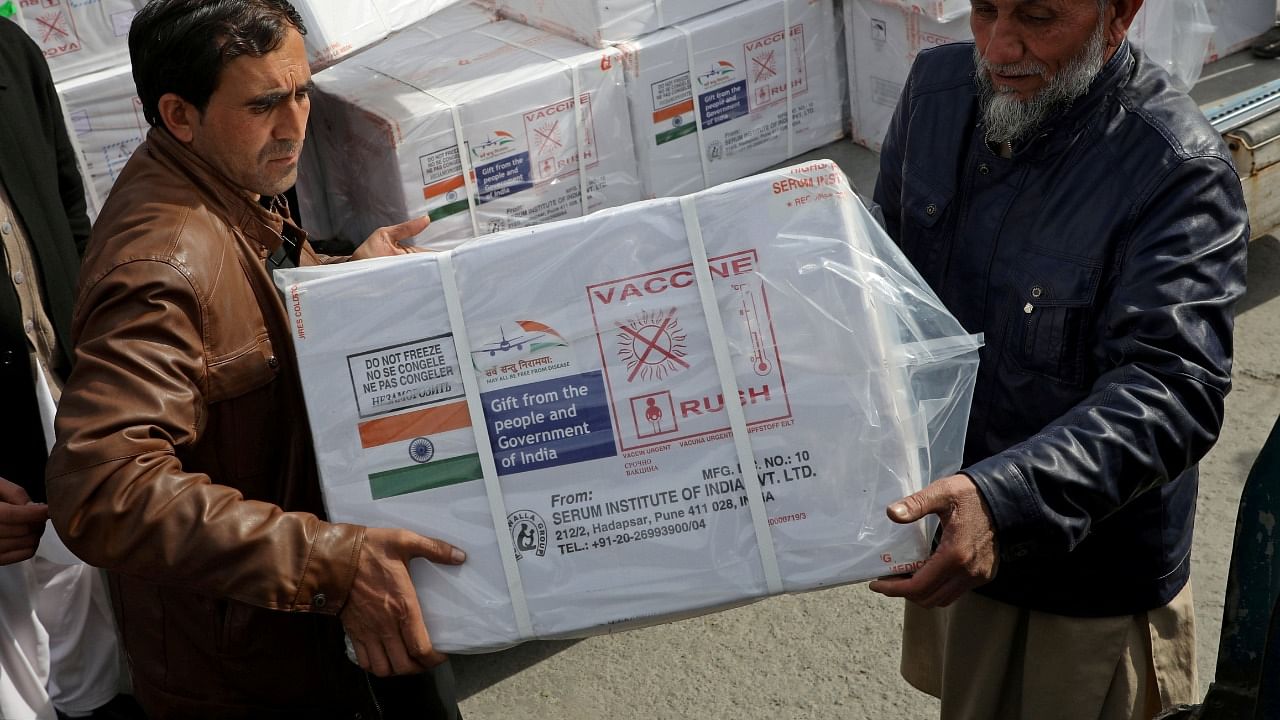
In early 2021, India received gratitude from countries around the world for its vaccine altruism. With the number of cases in India on the decline then, New Delhi veered towards vaccine diplomacy as a soft power tool to regain support and confidence in its neighbourhood and faraway nations.
It supplied vaccines to neighbours Sri Lanka, Bangladesh and Bhutan along with allies like Brazil. What looked like a pragmatic decision then was considered a significant policy failure two months down the line when the second wave of Covid-19 infections hit the country.
New Delhi changed its vaccine policy later. The Narendra Modi government halted vaccine exports and got down to vaccinating the adult population of the country. With a gradual increase in vaccine stocks and a centralised system controlling the vaccination process, there was an uptick in daily doses. Now, three months past the peak of the second wave of infections, the vaccination figures finally meet the government's goals with additional supply for any unforeseen contingencies.
As a major vaccine manufacturer, India is expected to lend its hand to protect global health by exporting vaccines to other nations which are yet to administer vaccination doses to the majority of its population. Reports have mentioned India's plans to restart the export of vaccines to African countries in the coming weeks.
There are also reports that the PM will discuss the possibility of India's role in vaccine exports with the US President during his visit to that country later this week. The Americans could ask India to release doses as humanitarian aid to other countries to combat the spread of the virus and its deadly variants.
But is it time to go back to vaccine diplomacy, or should India take time to assess the situation better and make a rational decision? There are reasons to suggest that India, a compassionate nation-state, should adopt a wait and watch approach to exporting vaccines.
Lessons from the second wave
The exponential rise in the number of cases per day, an acute shortage in oxygen cylinders and a complete breakdown of the public health system in India during the second wave of Covid-19 made the decision to export vaccines look like political than a humanitarian one. It had come on the back of already dwindling numbers of vaccinations per day.
When vaccinations were the key to mitigating the pandemic's effect, India was reeling under an immense shortage of vaccines with little or no accessibility to common people.
India, with its population of 1.3 billion people, will take a while to achieve herd immunity. As of September 16, 20 per cent of the country's population have been fully vaccinated, while around 60 per cent have received at least one dose. There is still a long way to go to ensure the safety of the Indian population.
The rapid rise in the infection rates during the second wave should serve as a reminder for the government to expect the unexpected. While cases have flattened now with ample vaccine supply, a kick start of the export of vaccines might again put the unvaccinated at significant risk with a new wave of infections around the corner.
The current situation in the US showcases the risk of a large number of unvaccinated people. Massive spikes in infection rates have been reported, with most hospitalisations attributed to those not taking the shot. Vaccinations remain the primary way to tackle the pandemic, and any obstacle to the process will prove detrimental to the recovery process.
Fewer incentives in India
Historically, India has suffered due to vaccine hesitancy which has stymied the efficient distribution of vaccines to the masses. While Covid-19 vaccinations have generally been voluntarily taken, especially in the urban areas, the penetration of vaccines into the rural areas is still a work in progress. Neither does India offer any incentives for taking the vaccine to persuade people to be less apathetic towards the process.
Moreover, unlike countries like the US, France and Canada, India does not have an official vaccine mandate. While other countries have categorically mandated only the vaccinated to access public spaces, India has no restrictions.
With no mandatory vaccinations required, a section of society might tend to avoid getting the jab, which makes it imperative for the Indian government to ensure an adequate supply of vaccines that can reach the country's hinterlands and increase vaccine coverage. Increased vaccine exports at this juncture might again result in less coverage and more susceptibility to the virus.
Booster shots?
There is speculation whether India will provide an additional shot of vaccine to increase immunity against the virus. Singapore decided to give an extra dose of vaccine to its citizens recently. But considering India's massive vaccination drive, there remains the question of when to administer the booster shot to the people.
The government is still mulling the necessity of a booster shot and whether it might be feasible at the current pace and supply of vaccines. With new and emerging strains of the virus popping up, the requirement for an extra dose looms large, which would effectively mean that the supply and demand for the vaccine would rise, and exporting vaccines might cause a shortage to those taking the booster shot.
Vaccine diplomacy was at its peak early this year. But India, a supplier of vaccines, suffered significant losses during the second wave of infections that hit the country. Earning diplomatic brownie points at the expense of the lives of Indians would be committing the same mistake all over again.
The government should not bow down to external pressure but be more cautious. The government should ensure that sufficient stocks of vaccines will be there for people in India post exports, unlike the last time.
(The writer is a research analyst for Takshashila Institution)
Disclaimer: The views expressed above are the author's own. They do not necessarily reflect the views of DH.